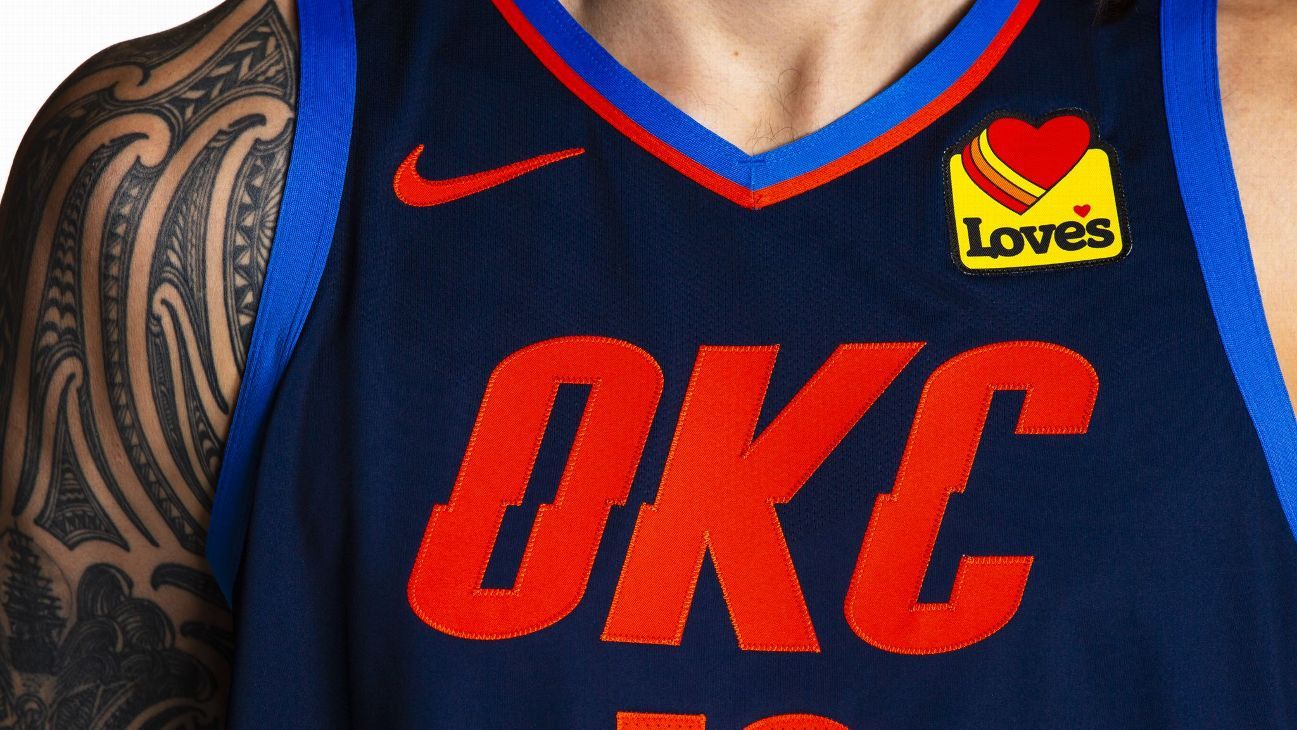Over the two seasons in which NBA teams have been allowed to sell space on jerseys to advertisers, there has been one holdout: The Oklahoma City Thunder kept their jerseys patch-free.
That will end Saturday, as the Thunder have reached a four-year agreement with Love’s Travel Stops & Country Stores, an Oklahoma City-based national retail chain, the team tells ESPN.com. The company, founded in Oklahoma in 1964, will have its patch debut on Thunder jerseys during Saturday night’s nationally televised game against the Golden State Warriors.
Love’s was one of the Thunder’s original sponsors when the team moved to Oklahoma City in 2008 and has maintained deals with the team in all 11 of its seasons there. It sponsors the popular in-arena Kiss Cam and serves as the namesake for the third level in the Chesapeake Energy Arena — Love’s Loud City.
The Love’s logo on Thunder jerseys has never appeared anywhere else; the company — in conjunction with the Thunder — designed a custom logo for the jersey patches, said Brian Byrnes, the Thunder’s senior vice president of sales and marketing. “One of the things that being last really helped us to do was to coach Love’s on how to optimize this,” Byrnes said.
The Thunder and the NBA would not disclose the exact financial terms of the deal. The team said the deal ranks among the top 10 in average annual value, which would put it somewhere a little south of $10 million based on publicly known amounts. The league’s 29 patches have brought in an estimated $150 million per season so far, according to league sources.
The Warriors have by far the richest; the Japanese e-commerce company Rakuten paid the team an estimated $20 million per season on a three-year patch deal, according to ESPN.com’s prior reporting. Some of the original patch deals will expire in the next year or two, and league observers are curious about whether the market for them has improved.
The Thunder were under no time pressure to make a deal, team officials say. They met with several candidates and were willing to wait for the right partner. “We are not a knee-jerk organization,” Byrnes said. “I don’t think we saw this as something we needed to do. That was clearly the directive from our owner — that we did not need to do this.”
In end, they liked the idea of a company with local ties, an entrenched relationship with the team, and an upward national trajectory. (Love’s, which specializes in “highway hospitality,” now has almost 500 locations in 41 states, according to company data.)
“We wanted a comprehensive partnership — someone who saw this as not just a marketing platform,” Byrnes said. “That they have been with us for all 11 years here was one of the things that really crystallized this for us.”
